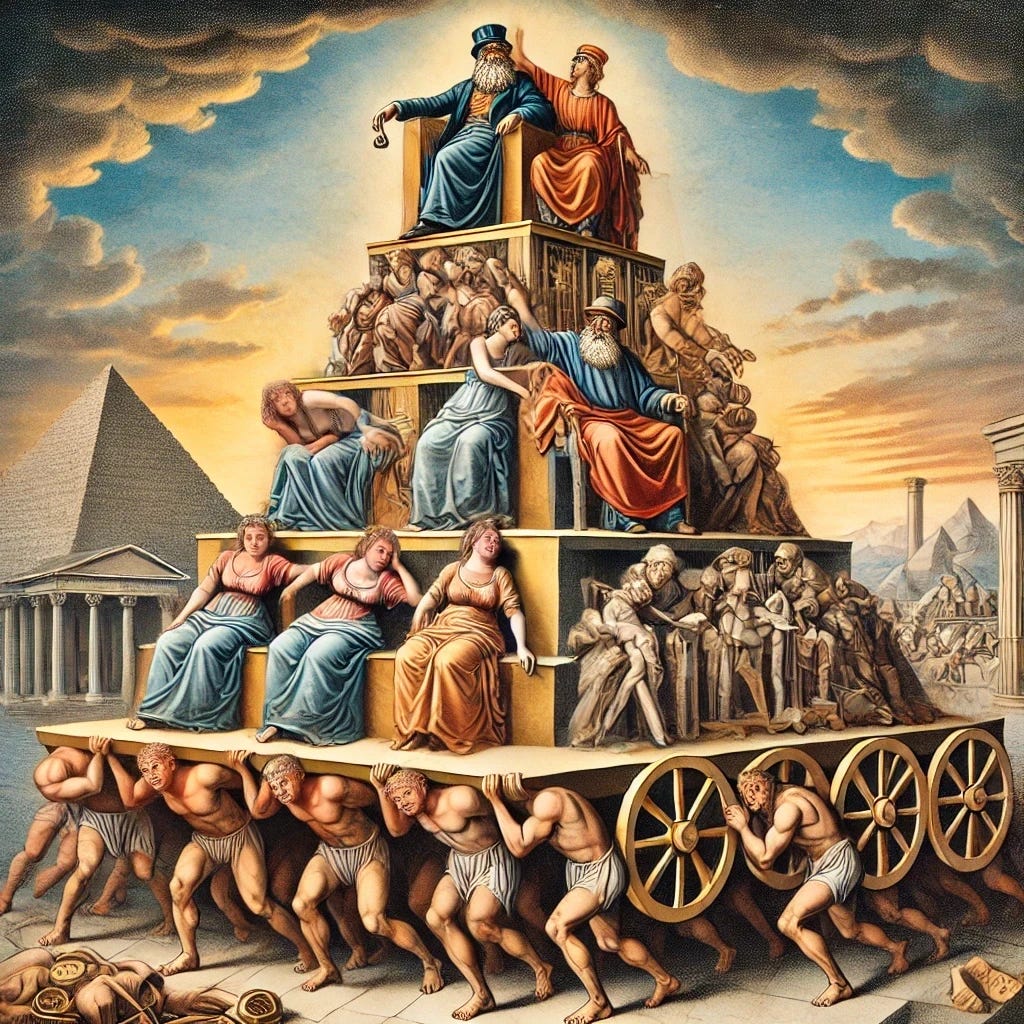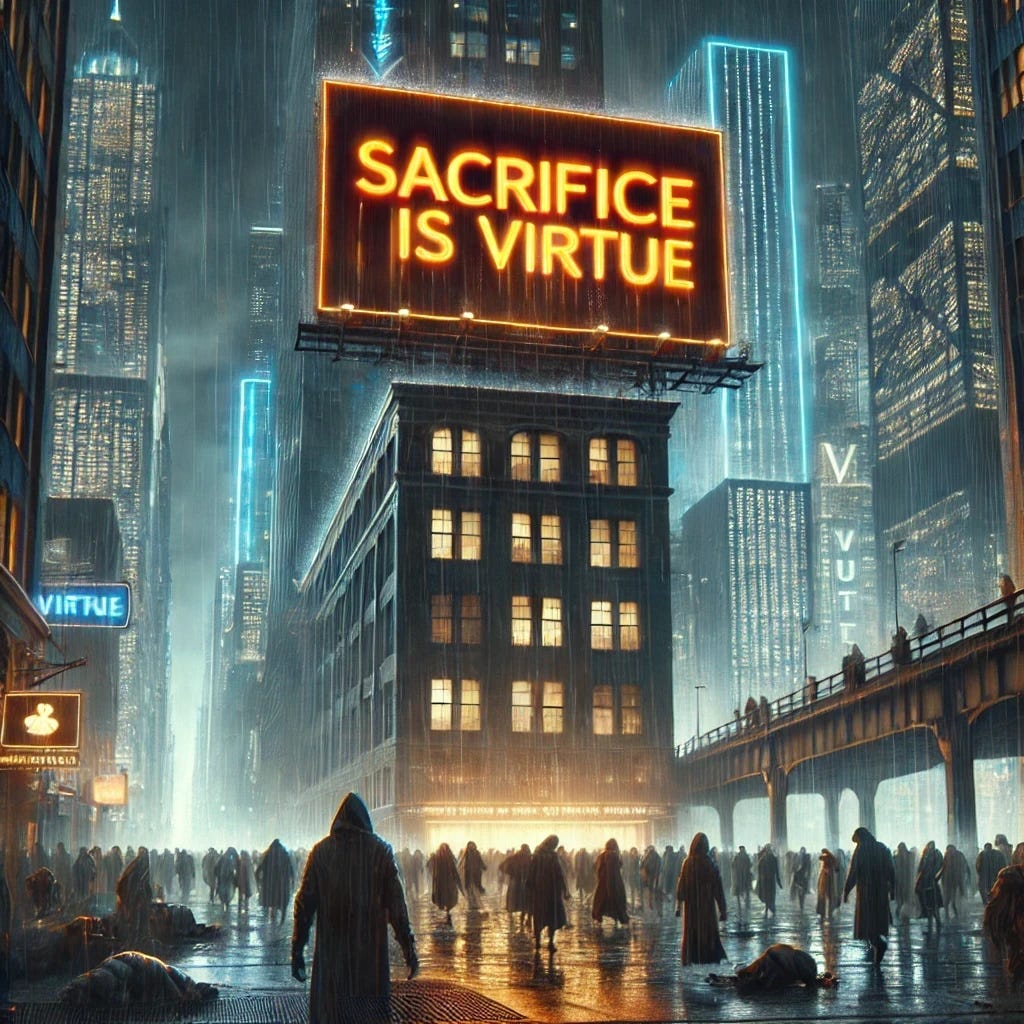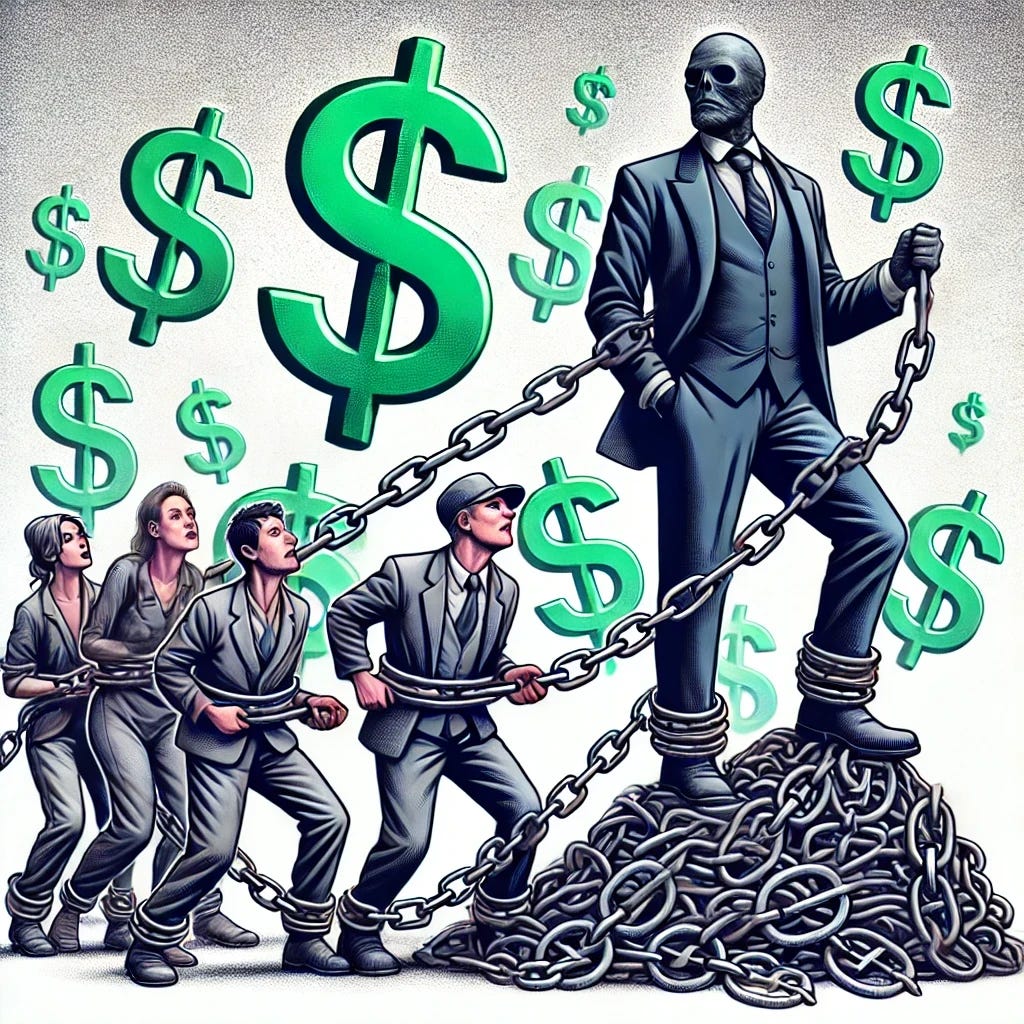The Fetishization of Sacrifice
A Mechanism of Control
Sacrifice, heralded across history as a noble and virtuous act, occupies a central place in the collective ethos of most societies. Whether in religious rituals, national mythologies, or personal relationships, the notion of giving something up for a greater cause has been romanticized to an extraordinary degree. But beneath the surface of this idealized virtue lies a troubling question: who benefits from the sacrifices we are encouraged to make? A deeper examination reveals that the valorization of sacrifice often serves as a sophisticated mechanism of control, allowing the powerful to perpetuate their dominance by pacifying the masses through ideals that glorify suffering and self-denial.
The Mythology of Sacrifice
The origins of sacrificial ideology are deeply embedded in religious traditions. In ancient societies, humans offered up their crops, livestock, and even their lives to appease gods, hoping for divine favor in return. Over time, these practices shifted from literal to metaphorical sacrifices, where devotion, hard work, and self-denial became the currency of morality.
The transition from ritual sacrifice to the internalized ethic of self-sacrifice coincided with the rise of hierarchical societies. Those in power—monarchs, priests, and landowners—recognized the utility of promoting self-sacrifice as a social norm. By convincing the lower classes that their suffering was virtuous, they transformed systemic exploitation into a divine or patriotic duty. The laborer toiled in fields, the soldier died in battle, and the citizen accepted deprivation—all in service to a "greater good" controlled and defined by the elite.
Sacrifice as a Tool for Economic Control
In capitalist societies, the rhetoric of sacrifice has shifted to emphasize hard work and frugality. The working class is bombarded with messages glorifying sacrifice: long hours at work, delayed gratification, and an acceptance of economic inequality are framed as virtues that pave the way to eventual success. The American Dream, for instance, relies heavily on this narrative—convincing individuals to accept suffering in the short term with the promise of a brighter future.
Yet, the promised rewards rarely materialize. The wealth generated by the sacrifices of the working class disproportionately enriches the elite, while systemic barriers often prevent upward mobility. Sacrifice, in this context, becomes a tool for maintaining the status quo. By glorifying the struggles of the underprivileged, society distracts from the systemic inequalities that necessitate those struggles in the first place.
The Military-Industrial Complex and the Cult of Sacrifice
Few institutions exploit the mythology of sacrifice as effectively as the military. From ancient Sparta to modern nation-states, young men and women are indoctrinated with the belief that giving their lives for their country is the ultimate act of valor. This narrative is perpetuated by the ruling class, who rarely participate in the wars they orchestrate.
In reality, war primarily serves the interests of the wealthy and powerful—defending resources, expanding markets, and maintaining geopolitical dominance. The sacrifices made by soldiers and their families are romanticized through ceremonies, medals, and memorials, but these rituals mask the fact that their suffering is often unnecessary and avoidable. The glorification of military sacrifice ensures a steady supply of willing participants in conflicts that disproportionately benefit the elite.
Psychological Manipulation and Internalized Oppression
The fetishization of sacrifice is not merely a societal imposition; it becomes internalized by individuals, who equate their worth with their ability to endure suffering. This internalization serves as a powerful form of control, as it eliminates the need for external enforcement. Workers police themselves, soldiers volunteer for combat, and citizens accept austerity measures—all believing that their sacrifices are noble and necessary.
This psychological manipulation is reinforced through cultural narratives. Literature, film, and religion often depict self-sacrifice as the ultimate expression of love, courage, or morality. These stories condition individuals to accept suffering as a meaningful and inevitable part of life, diverting attention from systemic injustices and preventing collective action.
Challenging the Ideology of Sacrifice
To dismantle the control mechanisms embedded in the ideology of sacrifice, society must reframe its values. Instead of glorifying suffering, we should prioritize well-being, equity, and fulfillment. This shift requires rejecting the narratives that equate self-denial with virtue and recognizing that many forms of sacrifice are neither noble nor necessary.
Moreover, the redistribution of power and resources is essential to breaking the cycle of exploitation. When individuals are no longer forced to sacrifice their time, health, or lives for the benefit of the elite, the mythology of sacrifice will lose its grip. Education and critical thinking are crucial in this endeavor, as they empower individuals to question the narratives imposed upon them and imagine alternative ways of organizing society.
The valorization of sacrifice, long held as a cornerstone of morality, is revealed to be a tool of control wielded by the powerful to maintain their dominance. By glorifying suffering and self-denial, the elite distract the masses from systemic injustices and perpetuate cycles of exploitation. To liberate ourselves from this ideology, we must reject the fetishization of sacrifice and envision a society that values human flourishing over servitude. Only then can we dismantle the structures of control and build a world where sacrifice is no longer a necessity.







